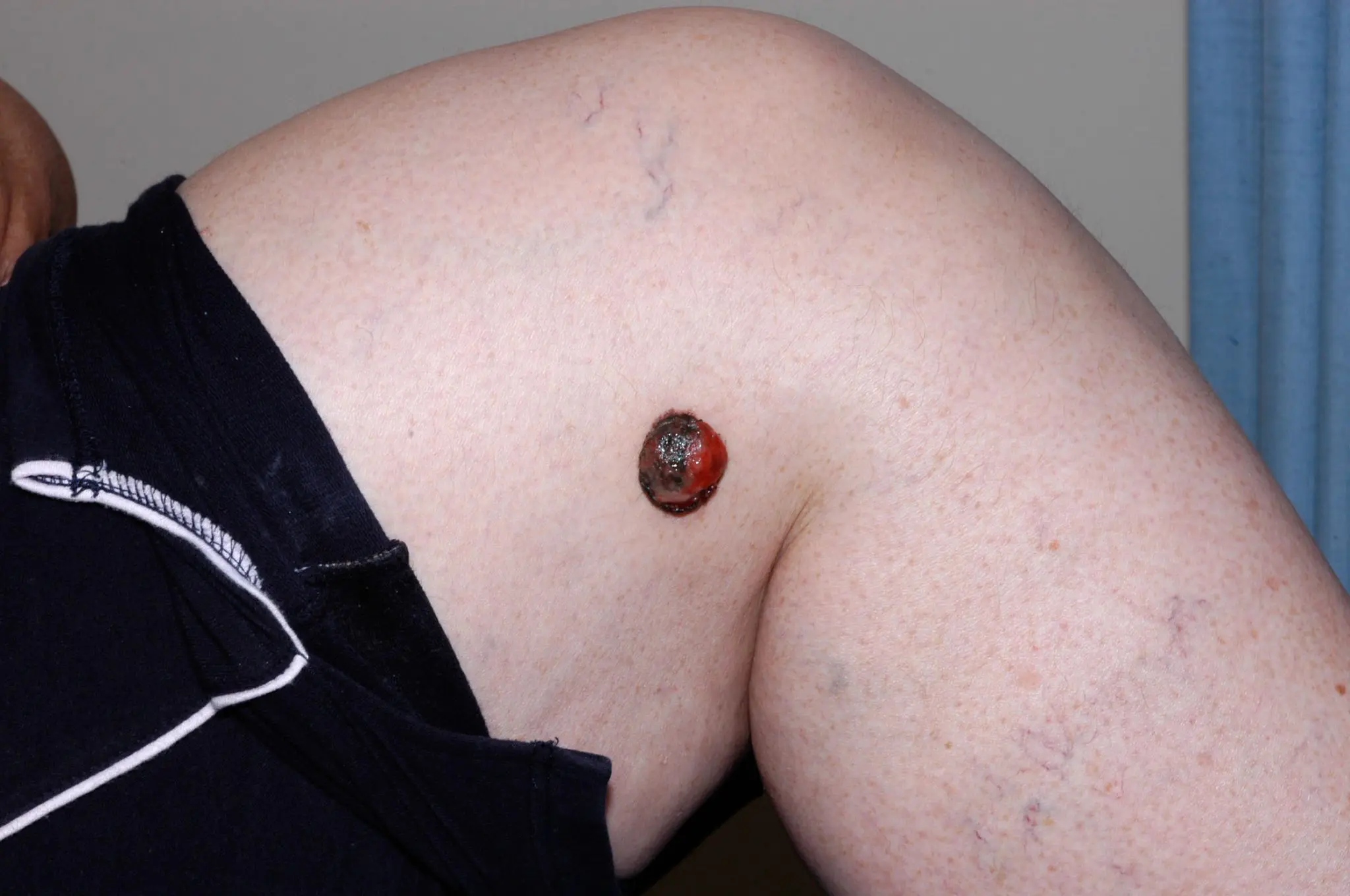Melanoma Treatment & Surgery
Choose a highly qualified Melanoma Surgeon.
Melanoma is the most serious form of skin cancer. It can spread to other parts of the body, and melanoma can be fatal. A melanoma usually starts as a pigmented lesion on normal skin or a changing mole. They often, but not always, occur in areas with high sun exposure. Some melanomas are not pigmented or amelanotic, so a proactive approach to skin checks is highly recommended, as early detection is linked to better outcomes. The management of Melanoma has undergone a revolution with the development of immunotherapy both in the adjuvant and neoadjuvant setting.
Diagnosis and treatment of Melanoma include excision biopsies, wide excisions +/- reconstruction, sentinel node biopsy staging, index lymph node biopsy and therapeutic nodal clearance.
The Melanoma Specialists provides all advanced surgical, radiation and medical oncology treatments for melanoma.
Learn about comprehensive integrated multidisciplinary care.
Visit Melanoma Specialists >>
Some Signs of Melanoma
- an existing mole that changes colour (it may be black, dark blue or even red)
- the colour pigment may be uneven
- the edges of the mole/freckle may be irregular and have a spreading edge
- the surface of the mole/freckle may be flaky/crusted and raised
- sudden growth of an existing or new mole/freckle
- inflammation and or itchiness surrounding an existing or new mole/freckle
Click here for more details on what to look for.

Treatment Options for Melanoma
A skin specialist must check any suspect moles or freckles. The sooner a melanoma is treated, the less chance of it spreading.
A biopsy or removal will be carried out for diagnosis and staging. Tissue samples will be sent for examination, as this will aid in diagnosis and help determine the type of treatment required. More surgery may be required to take a wider area around the scar. A Sentinel Node Biopsy may be recommended depending on the thickness of the melanoma.
A melanoma that is in the early stages can be treated more successfully and cure rates are much higher than for one that has spread. However, there have been enormous advances in melanoma management in the past few years with immunotherapy and targeted therapy drugs.
To discuss diagnosis, treatment and surgery for suspected melanoma, please make an appointment without delay.
Suspected Melanoma Management
If the pigmented lesion has been flagged as concerning, a biopsy under local anaesthesia will be the recommended next step. This fairly straightforward process involves removing the lesion with two millimetres of surrounding skin. Other targeted tests are performed if melanoma is identified under a microscope. Micro Staging may be used to determine if melanocytes (pigment cells) are abnormal and how much a tumour may have invaded the skin’s layer.
Surgical Treatment
Surgery is the primary approach to treating melanoma and can take place in many forms, including a wide excision of the primary site, or node sampling (Sentinel Node Biopsy), complete node clearance or removal of distant metastases (spread of cancer cells to parts of the body). Your surgeon will discuss the appropriate surgical treatment which might include axillary dissection, groin dissection, isolated limb infusion, complete lymph node dissection, or neck dissection.
For more information about each surgical treatment, visit Melanoma Specialists.
Melanoma Risk Factors
Regular self-reviewing of moles on the skin is recommended as well as expert re-examination periodically. Some personal risk factors to be aware of include;
- Personal or family history of melanoma
- Multiple moles (>100)
- Dysplastic naevi syndrome
- Fair skin, freckles, blue eyes, red hair
- Severe sunburn or recreational exposure
- Other types of skin cancer
For more information, visit Melanoma Specialists.

Other Skin Cancer Treatments & Surgeries
Basal Cell Carcinoma (BCC)
These often present as small, pearly red lumps that don’t heal. Some are superficial and can be treated topically with creams or cryotherapy; others could require surgery.
Squamous Cell Carcinoma (SCC)
Squamous cell carcinomas can metastasise to other body parts, including the lymph nodes. A proactive approach is recommended if you suspect a SCC.

Mr Richard Martin
Associate Professor (Hon.) Richard, a New Zealand-trained General Surgeon, has authored over 45 academic publications, frequently presents at national and international conferences, and is deeply involved in research and clinical trials. Additionally, he is an Associate Professor (Honorary) at the University of Auckland.
Having spent two and a half years at the Sydney Cancer Centre, specialising in melanoma and head/neck/thyroid/parathyroid surgery, Richard worked at the Sydney Melanoma Unit (now Melanoma Institute of Australia), the world’s largest melanoma treatment and research facility.
Book an appointment for an expert approach to melanoma treatments and surgical interventions.
Make an Enquiry
Please contact my rooms for an appointment to access my extensive experience.










